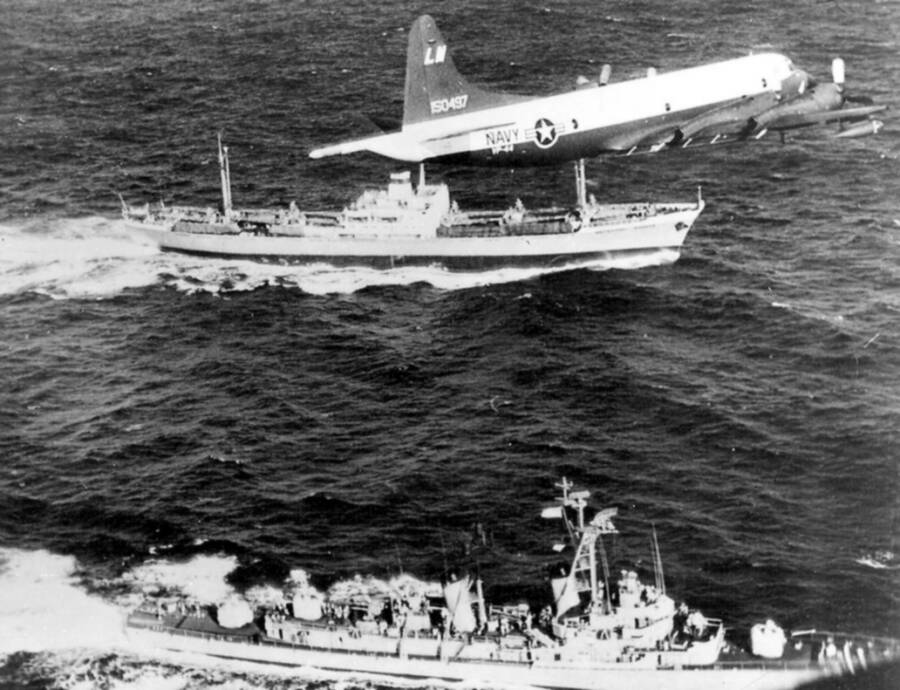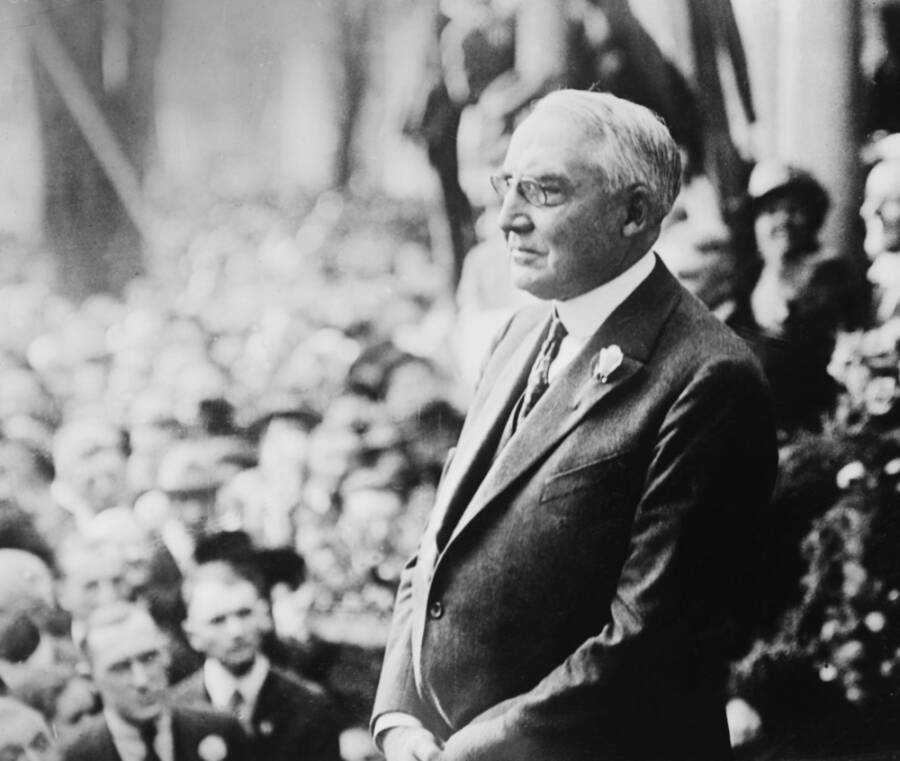
Barry had been ordered to investigate a Soviet merchantman, proceeded to her station on 9 November 1962 and sighted the merchant ship that evening. She closed to within 370 m on the merchantman’s starboard quarter, illuminated the ship’s quarter and bow, and identified her as the Soviet-registry Metallurg Anosov. Trailing astern, Barry followed the merchant ship, heading east away from the quarantine zone, until morning. After dawn, the destroyer closed the merchant, to “obtain photographs of deck cargo”, until late morning when Barry shaped course for the aircraft carrier USS Essex (CVS-9) for refueling and transfer of photographic personnel. It is maden voyage of turbine dry cargo vessel Metallurg Anosov (delivery date of the vessel 29/09/1962). — U.S. Navy National Museum of Naval Aviation photo No. 2011.003.162.001 — License: Public domain
Frequently Asked Questions
Was the “Swinging Sixties” a global phenomenon?
No, the “Swinging Sixties” specifically refers to the youth-driven cultural boom in London, characterized by fashion, music, and a new sense of optimism. While its influence—especially in music and fashion—was felt globally, it was a distinctly Western, prosperous, post-war experience. Life for a young person in China during the Cultural Revolution or in a newly independent African nation was vastly different and marked by political upheaval and nation-building rather than cultural hedonism.
How did decolonization in the 1960s affect the Cold War?
Decolonization turned the entire developing world into a new arena for Cold War competition. The U.S. and the USSR vied for influence over newly independent nations in Africa, Asia, and the Caribbean, offering economic aid, military support, and political backing to regimes that aligned with their ideology. This often exacerbated local conflicts, turning civil wars—like those in Congo and Angola—into devastating proxy wars between the superpowers.
Were the youth protests of 1968 connected?
While not formally organized as a single global movement, the protests were deeply interconnected. Students and activists around the world drew inspiration from one another. Shared grievances included opposition to the Vietnam War, authoritarian rule, and societal conservatism. New media, like television and print, allowed images and ideas from protests in Paris, for example, to quickly inspire students in Mexico City or Tokyo, creating a powerful sense of a shared generational struggle.
What was the most significant technological achievement of the decade with global impact?
While many innovations were important, the 1969 Apollo 11 Moon landing stands out. Broadcast live via satellite to a massive global audience, it was a transcendent moment of shared human experience that temporarily overshadowed political divisions. It represented the pinnacle of the Space Race, a key front in the Cold War, and showcased the incredible potential of science and technology. It remains a powerful symbol of human aspiration.
Why is there so much nostalgia for the 1960s?
The nostalgia surrounding the 1960s often focuses on the positive cultural aspects of the era in the West: the revolutionary music, bold fashions, and a sense of youthful idealism and rebellion. This romanticized view often filters out the decade’s immense violence, political instability, and the fact that the freedoms celebrated were not available to most people around the world. The decade represents a potent symbol of change and a belief that a younger generation could remake the world, an idea that remains appealing.
Disclaimer: This article provides a summary for informational purposes and reflects current historical scholarship. World history is vast and complex, and we encourage deeper study from academic sources.





